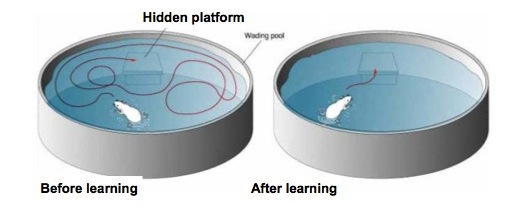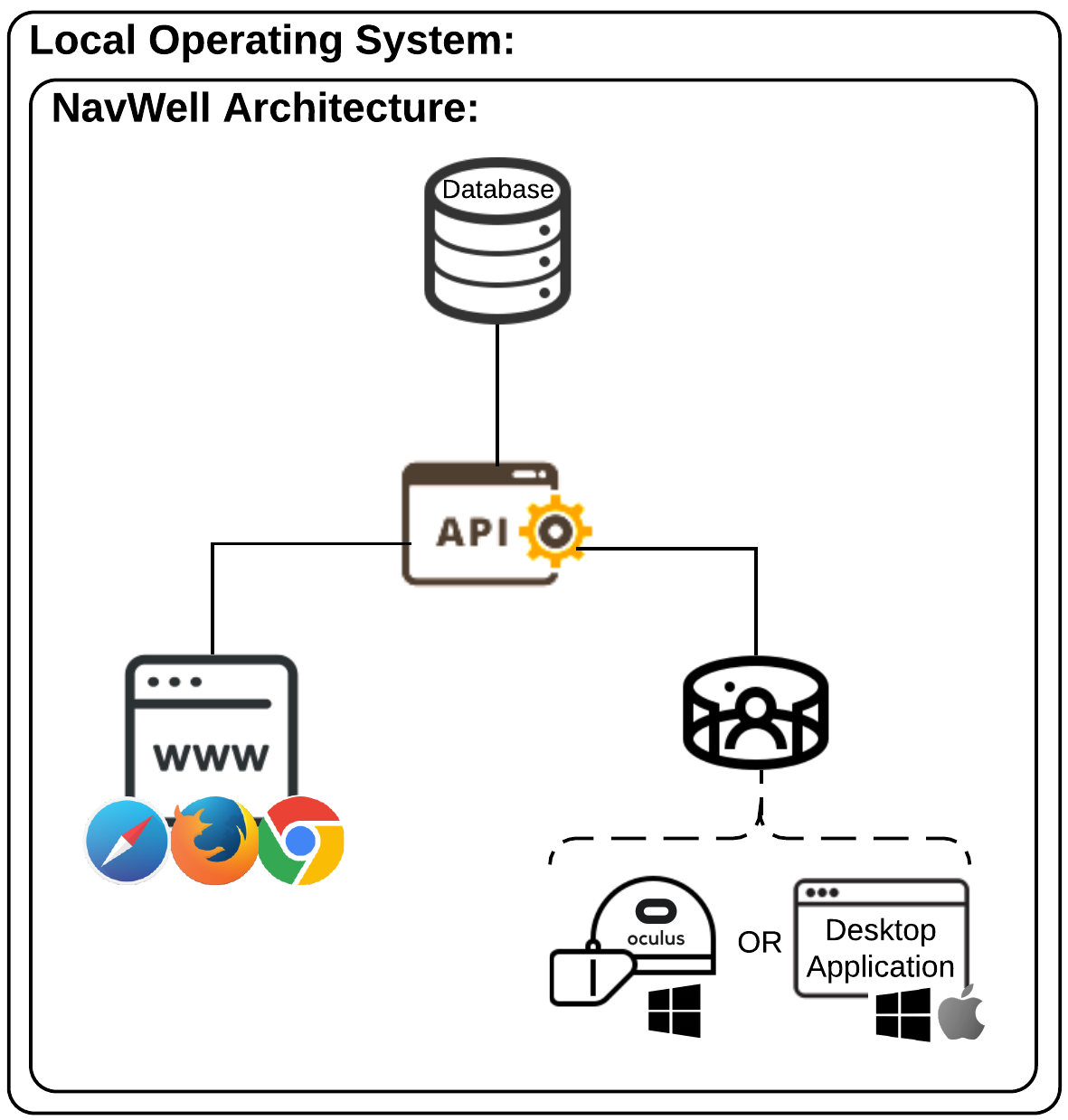What is NavWell?
NavWell is a virtual reality software suite for studying the spatial navigation capabitlities in human participants. This system enables users to effortlessly create virtual environments, design experiments using one of the user's environments, run the experiment using the Oculus Rift (or on the regular desktop application) and finally review the locally stored participant results from their web interface.


How does it work
NavWell is installed and runs completely within your local operating system. This installation is composed of the following components:
- NavWell's Database:
This local database stores all the users data. This includes participant data and experiment data
- NavWell's Administrator Console(Web Interface):
Accessible via a supported browser the Administrator Console enables users to fully design their experiments and analyse participants' results
- NavWell's Application:
Two executable files which run the designed experiment. This is cross compatible with MacOS, however the Oculus Rift is not compatible with MacOS
- NavWell's API:
This is the core component of the NavWell Architecture. It provides communication between components allowing. For example, it provide the administrator console with a means of saving new experiments and environments to the database as well as retrieving participant's results from the database
Publications
NavWell: A simplified virtual-reality platform for spatial navigation and memory experiments
Abstract:
Being able to navigate, recall important locations, and find the way home are critical skills, essential for survival for both humans and animals. These skills can be examined in the laboratory using the Morris water maze, often considered the gold standard test of animal navigation. In this task, animals are required to locate and recall the location of an escape platform hidden in a pool filled with water. Because animals can not see the platform directly, they must use various landmarks in the environment to escape. With recent advances in technology and virtual reality (VR), many tasks originally used in the animal literature can now be translated for human studies. The virtual water maze task is no exception. However, a number of issues are associated with these mazes, including cost, lack of flexibility, and lack of standardization in terms of experimental designs and procedures. Here we present a virtual water maze system (NavWell) that is readily downloadable and free to use. The system allows for the easy design of experiments and the testing of participants on a desktop computer or fully immersive VR environment. The data from four independent experiments are presented in order to validate the software. From these experiments, a set of procedures for use with a number of well-known memory tests is suggested. This potentially can help with the standardization of navigational research and with navigational testing in the clinic or in an educational environment. Finally, we discuss the limitations of the software and plans for its development and future use.
To request full paper:
Please visit Research Gate
When using NavWell in reseach please cite this paper
Meet the Team

Dr. Sean Commins
Researcher
Bio

Mr. Joseph Duffin
Supervisor
Bio

Keylor Chaves
Creator
Bio

Andrew Keogh
Current Developer
Bio

Kevin Corcoran
Support Engineer
Bio

Diarmuid Leahy
Support Engineer
Bio

Deirdre Finan
Support Engineer
Bio